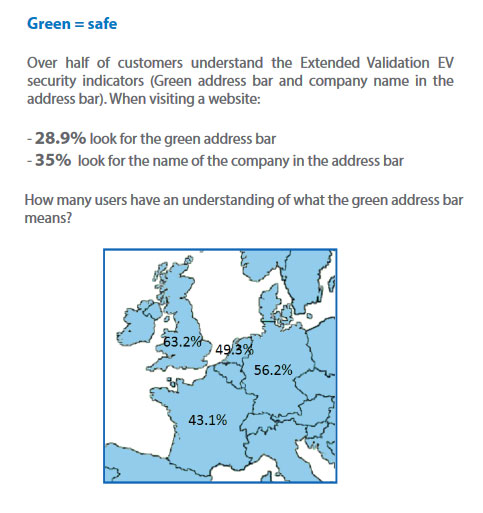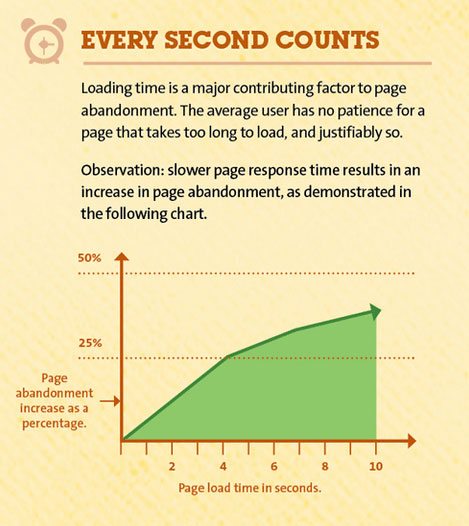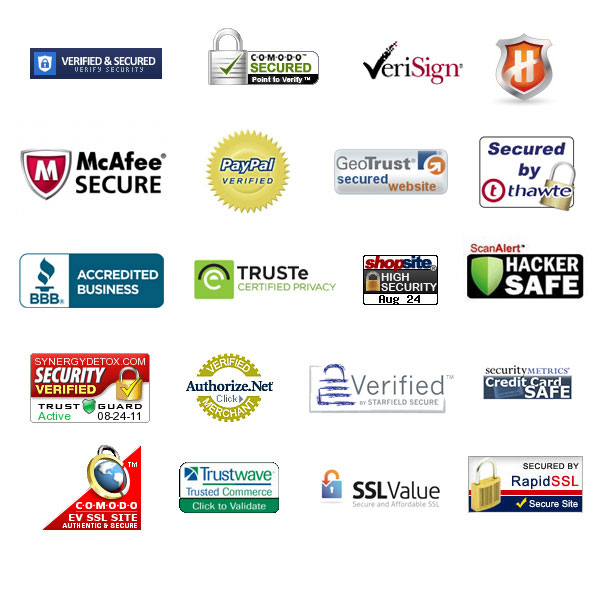The Internet allows us to do almost anything we want whenever we want. We can research any topic, buy whatever we want, do banking or our taxes, educate ourselves, and so much more. It’s a 24-hour buffet of possibility.
However, along with these new means, the web has also increased our risk. First of all, it has created a space where anyone can put out any information they want.
In addition to that, there is the issue of keeping your private information secure. Phishing emails, people who hack your website and other dangers have given us all collective trust issues. We are more concerned about online privacy than ever (even if that concern doesn’t always translate into appropriate actions).
For that reason, building trust online is one of the most central challenges of running a website. To help you do so, in this article we will look at reasons why people might not trust your website and what you can do about it. The goal is to help you understand what it takes to make your audience and customers feel safe on your WordPress site.
Why People Don’t Trust Your Website (And What to Do About It)
In the following, you will find common reasons why people don’t trust websites plus tips on how to do better.
Lack of a Unique Domain Name
Would you buy something from a shop that doesn’t have their own domain name? Do you take a blogger seriously who is publishing on a .wordpress.com address? Sure you might, but it would take a lot more effort to convince you, wouldn’t it? That’s the same with everyone else.
Having your own custom URL is a sign that you take yourself, your blog and/or your business seriously. You are basically saying that it’s more than a hobby to you and that you are willing to shell out money to run your own web presence on your own URL.
As a consequence, the first step to building trust online is to invest in a unique domain name. Of course for that, it’s useful to learn how to pick a good one
No SSL Encryption
Encryption is not only important to keep consumer data safe, it also makes it obvious to everyone that you care to do so. In times of rampant identity theft, consumers are not only concerned but also educated about it.
Plus, browsers now display warnings for out-of-date SSL certificates and Google Chrome marks pages as unsafe that have submission forms without encryption in place. Both are a death knell for consumer trust.
As a consequence, having proper SSL encryption in place is a must. Luckily, we have a whole article on how to add it to your WordPress website.
Slow Loading Times
Loading speed can also be an important reason people don’t trust your WordPress website. A large part of users will abandon a website that takes too long to load.
While slow loading speed doesn’t actually make your site less secure, it does make you look unprofessional. Professionalism means trustworthiness, so you better learn how to speed up your WordPress site pronto.
Unprofessional Web Design
Users form first impressions of websites within milliseconds. They decide almost instantly whether they like and trust your site or not. That is not enough time to read any of your copy. Consequently, investing in your web design is investing in consumer trust.
Here are some must-haves to create appealing and professional web design:
- Up to date — If your site looks like it was built during the heyday of MySpace, good luck having anyone stay on it. While you don’t have to follow every web design trend out there, having a design that is on par with best practices goes a long way. This can simply mean finding a good WordPress theme.
- Easy to use — Of course, your website is only worth sticking around if users can achieve what they came there for. That means it’s easy to navigate, uncluttered and contains everything they need. For online shops, it’s also important to order products in categories and provide a good search function.
- Mobile friendly — These days, more than half of all web traffic comes from mobile devices. For that reason, you definitely need to learn what makes a site mobile friendly and invest in responsive design.
Missing Contact Information
Similar to bad design, a lack of contact details can also turn site visitors off. Especially if you are running a business, clients need an easy way to get in touch with you. In fact, clear contact details are the second most important factor for people to trust an e-commerce site.
Aside from that, a lack of contact details makes you seem very anonymous and that’s not something people dig. They are looking to connect with you, your site, business, or blog. The more it looks like an impenetrable fortress, the less likely that will happen. So, create that contact page already!
Not Having a Detailed About Page
In addition to contact details, an About page is also central to establish your identity and visitor trust.
It might come as a surprise but the About page is often one of the most visited pages on websites, including online stores. So much so that when Pat Flynn of Smart Passive Income added an extra opt-in form to his about page, it increased his conversions by a whopping 446 percent.
Especially for smaller enterprises and personal sites, visitors like to know the people, story, and values behind them. The less of a faceless entity they encounter and the more they can identify with what you do, the easier building trust online with your customers will be.
So, what features help an About page achieve this?
- Easy to find — Since people are already interested in learning more about you, make sure they can find the place where they can do so easily. That means including your About page in your main menu and giving it a clear title.
- Benefit-driven — While this particular page might seem like it’s all about you, it’s actually more important that it shows how you can benefit your visitors. How will you help them? What can they get out of your site? They will want to know.
- Tells a story — Of course, you also need to talk about yourself, tell your story and relate how and why you started your website or business. Who are you as company/person? What makes you tick? Be relatable, open and include pictures! They say more than a thousand words after all.
- Includes a call to action — As mentioned, the About page is one of the most visited pages on your website. For that reason, it’s prime real estate for conversions. So don’t skimp on sign-up forms or other conversion tools!
This page is also a great place to display social proof. More on that below. For a detailed post on how to create an effective about page, look no further than this article.
Absence of Trust Indicators
Aside from everything else listed here, there are also some site out there whose only function is to convey trustworthiness:
- Privacy policy — Having a dedicated privacy policy shows awareness of the topic and let’s visitors know exactly what you are committed to. Plus, in many places having one is actually required by law.
- Trust logos — There are many badges to choose from, from antivirus checks to business associations. However, some are more effective than others. Use them and make sure to display your logos visibly.
- Purchase guarantee — If you have an online shop, giving a purchase guarantee is a must for consumer trust. Nobody wants to be stuck with product they don’t like but can’t give back, so don’t skimp on this step!
Low-quality Content (Or None at all)
Content is the go-to marketing tool by now. Especially blog content is one of the most sources of information out there. As a consequence, having a regular blog can greatly enhance your visitors’ trust in you (and decrease it if they don’t find one).
However, when you do create content, avoid creating stuff that is:
- Full of mistakes — Typos and grammar mistakes makes you look really unprofessional. If you can’t be bothered to at least spellcheck your content, why would anyone trust what you have to offer or sell? So, hire an editor or at least use a plugin.
- Spammy/overoptimized — People have a sixth sense to sniff out when something is too good to be true. If your copy resembles a letter from a certain Nigerian prince, most of them will leave. Content clearly aimed at gaming search engines is just as bad, however, it is entirely possible to create content that satisfies both readers and Google.
- Self-centered — For marketing copy, the same applies as for the About page. Concentrate on user benefits rather than tooting your own horn.
- Out of date — If you are running a blog and your latest article is from several years ago, your site will seem abandoned and thus untrustworthy.
Absence of Social Proof
The herd animal in us naturally looks to others to see who we can trust. It’s why 88% of online consumers trust online reviews as much as much as personal recommendations. For that reason, if you can get any sort of personal feedback from users, customers or influencers, by all means include it on your site!
Also, if applicable, encourage customers to leave reviews on Google Maps and other places. This will also help your local SEO. You can find other ways to use social proof for building trust online in this article.
Ad and Popup Overload
Don’t get me wrong, I am not against using ads or popups in general. In fact, they can be an important way to monetize WordPress websites.
However, it’s all about restraint. If the ads on your site crowd out the content and you hit visitors with two popups and a slide in, they will not consider you very professional or trustworthy. Plus, Google doesn’t like it either especially on mobile sites.
Consequently, you might want to reduce the number of such prompts, make sure they integrate well with rest of your site and use things like exit intent to only show pop ups when visitors are about to leave. This will make customers feel like you value their attention spans and they will value you in return.
Non-existent Social Media Presence
Especially for businesses, being on social media is a must. It’s a way to talk to visitors and potential customers and have them talk back. As a consequence, social networks have become an important customer support channel.
Without a social presence, you rob users of a way to get in touch with you (see also the point about contact details). This might lead visitors to feel like something is off and stay away. Same if you are indeed on social but your profiles are dead.
Building Trust Online Isn’t Hard
Trust is one of the most important currencies on the web. Users are getting more careful and many are concerned with online privacy. For that reason, it’s very important to put them at ease.
Above we have gone over a number of reasons why people might not trust your WordPress website and what to do about it. Most of it comes down to simply building a high-quality site and following best practices. Other factors are transparency and providing proof of other people trusting you.
If you follow the above, you will be ahead of the curve in showing your audience that they can trust you. After that comes the even more important part: not squandering the trust you worked so hard to earn.
What are other factors that make websites untrustworthy? Let us know in the comments section below!






2 Comments